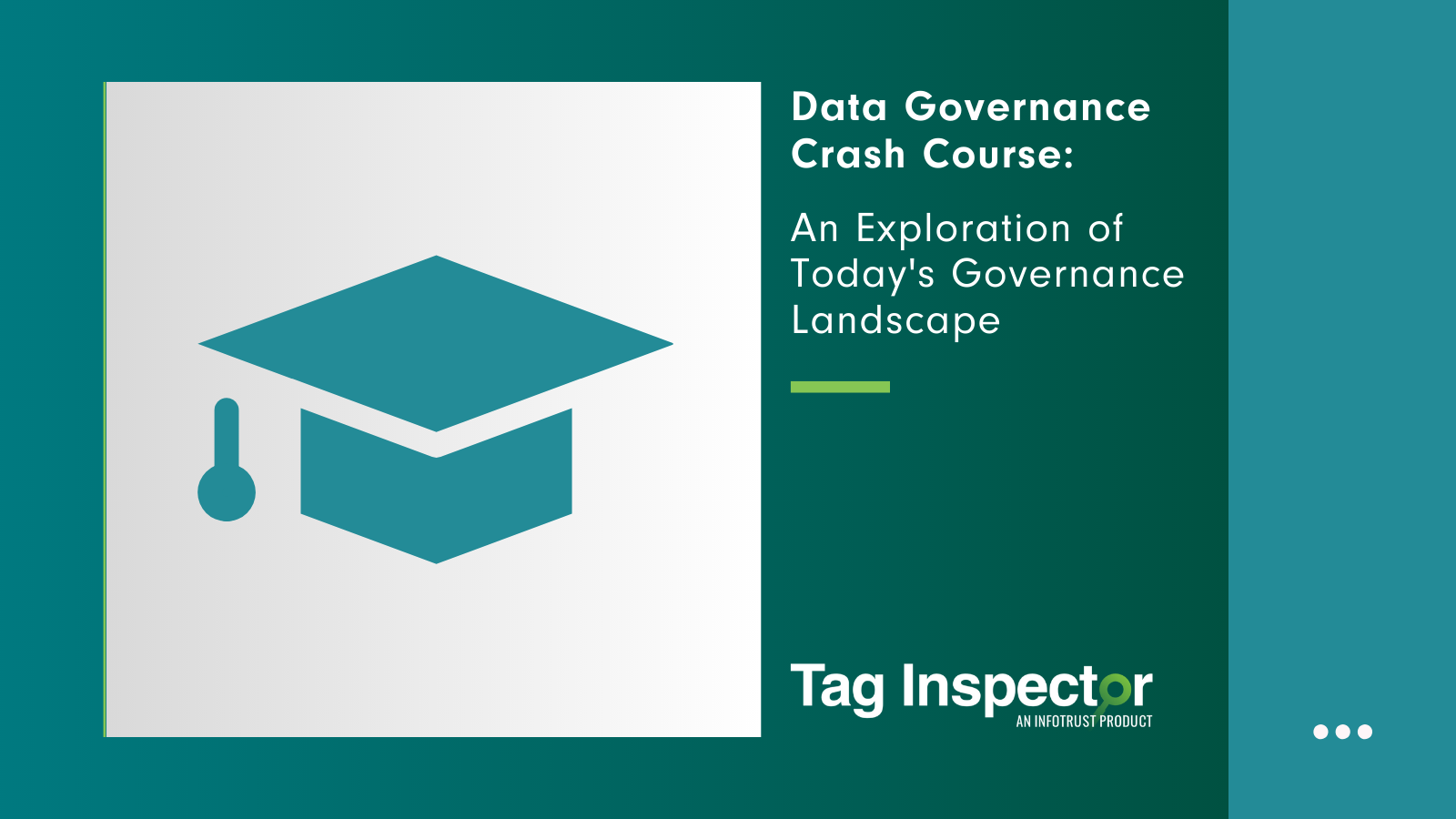The past few years have ushered in a completely new landscape in the areas of data collection, tag management, and user privacy. Beginning with the introduction of the General Data Protection Regulation (GDPR) in 2018, to the resulting renewed emphasis on ePrivacy “cookie laws” across Europe, to finally the introduction of the California Consumer Privacy Act (CCPA) in 2020 mandating user privacy protections in the U.S., we now find ourselves in a new era of data governance.
Years ago, “data governance” was a term rarely heard outside of niche departments in our organizations. Now it seemingly comes up daily and in half of the marketing messages we receive from marketing and advertising technology vendors. At Tag Inspector, when we say “data governance,” we mean the holistic policies and processes ensuring data is collected, processed, and actioned in a complete and compliant manner.
Throughout this time of constant regulatory change, the Tag Inspector team has been hard at work educating our partners on all things tag and data governance. To help bring you up to speed, we’ve aggregated together much of this content here in our “Data Governance Crash Course.” Curious about a specific topic? Dig into content specific to that area. Brand new to the tag management and data governance space? Start from the top and you’ll be a pro in no time.
Tags and Cookies: An Introduction
We begin our journey through data governance with some baseline knowledge on tags and cookies. What are these technologies, how do they work, and how do they play into the digital marketing and advertising ecosystem? The resources provide a base of data governance knowledge on which we can build.
Rules of the Game: Overview of Relevant Privacy Laws, Regulations, and Technical Safeguards
Now that we understand what tags and cookies are, and how both function within the digital data collection ecosystem, it’s important to understand what rules need to be followed for compliant data collection. We’ve broken out the major privacy laws & regulations impacting most organizations. Resources for each can be found in the respective sections.
- General Data Protection Regulation (GDPR)
- California Consumer Privacy Act (CCPA)
- ePrivacy Directive (“Cookie Laws”)
- Technical Limitations (Browser Efforts to Protect User Privacy)
Tag Governance Process and Policy: Actions For Your Organization to Address Data Governance
So we understand the laws and regulations along with the technologies that they are meant to cover. What should you be doing within your organization to properly prepare your data governance strategy? We explore this topic in this section. The following resources will review the audit process, policies, and processes that you need to implement, as well as ongoing monitoring practices to ensure compliance moving forward.
- Comprehensive Guide: Tag Governance Playbook (PDF/whitepaper)
- Audit
- Tag Governance Policy and Processes
- Monitoring
Best Practices: Optimizing Data Collection and Activation in Today’s Governance Environment
At this stage you know the technologies, rules, and policies/processes that make up a solid data governance strategy (and how to create them). Let’s now explore some best practices to tie everything together. The resources in this section will build on our knowledge base and discuss topics around optimization and how to maximize compliant data collection and activation. We’ll also explore tags and their impact on performance, an often-overlooked consequence of marketing and advertising technology usage.
- Comprehensive Tag Governance Playbook for Brands (webinar)
- Optimizing Data Collection in Today’s Privacy Environment (USA) (webinar)
- Optimizing Data Collection in Today’s Privacy Environment (EU) (webinar)
- Optimizing Consent Experiences Through A/B Testing (article)
- Tags and Performance
The above resources should get you what you need to know for a fairly comprehensive understanding of data governance, tags, and the current landscape for digital data collection and activation. The only constant in the advertising and marketing technology space, however, is that nothing is constant. We will be updating the above regularly with additional resources as the rules of the game change and best practices for each new reality.
Interested in any specific topic? Reach out to us; we’d love to further discuss the needs of your organization and how we can help. Think we’re missing anything? Please let us know.
